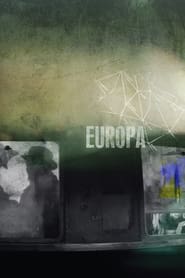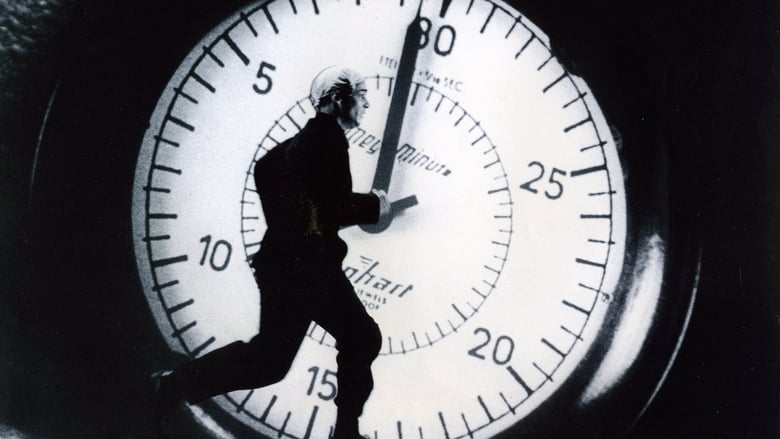“Europa 1991” is a gripping and enigmatic film that takes viewers on a metaphorical rollercoaster ride through the fragmented and surreal landscape of post-communist Eastern Europe. The movie weaves together different stories of individuals grappling with identity, disillusionment, and the complexities of transitioning societies. Its stark black-and-white cinematography creates a haunting and dreamlike atmosphere, akin to wandering through an intricate labyrinth where nothing is as it seems. As each character navigates their own maze of personal struggles, the film unveils profound insights into the human condition and the challenges of embracing change. In its brevity, “Europa 1991” is a masterful exploration of a transformative era in Europe’s history, leaving viewers mesmerized and craving for more.

CLICK HERE⭳⭳⭳✔️_Watch Europa 1991 English Subtitles_
Review
Europa: Exploring the Depths of Existential Turmoil
Introduction:
Welcome, dear readers, to a world where the boundaries of reality and fantasy blur, where the human psyche is laid bare, and where curiosity intertwines with fear. In this article, we delve into the cinematic masterpiece that is “Europa,” a movie that takes us on a thought-provoking journey through time and space. Immerse yourself in a narrative filled with enigmatic characters, stunning cinematography, and an awe-inspiring score – all under the astute direction of visionary filmmaker Lars von Trier.
Storyline:
“Europa” unfolds against the backdrop of post-World War II Germany. Our protagonist, Leopold Kessler (Jean-Marc Barr), an American working as a train conductor, embarks on a fateful journey into the heart of darkness. As he becomes entangled in the affairs of a mysterious family living in West Germany, Leopold’s life takes a surreal twist. Von Trier crafts an intricate storyline that explores themes of guilt, redemption, and the trappings of determination.
Plot:
The plot thickens when Leopold falls for Katharina Hartmann (Barbara Sukowa), whose family holds secrets that threaten to consume them all. With their lives spiraling into chaos, von Trier masterfully uses visual metaphors and symbolic imagery to depict the struggle between personal desires and moral obligations. “Europa” unfolds as both an allegory for war-torn Europe and an introspective exploration of individual consciousness.
Fact:
Did you know that “Europa” was inspired by von Trier’s own childhood memories? Growing up in post-war Denmark shaped his fascination with Europe’s scars of destruction. This personal connection led him to infuse authenticity into every scene, evoking intense emotions from both actors and audiences alike.
Casts:
Led by Jean-Marc Barr’s mesmerizing portrayal of Leopold Kessler, the cast brings their characters to life with remarkable nuance. Barbara Sukowa delivers a riveting performance as the conflicted Katharina, capturing the essence of vulnerability and resilience. Furthermore, Udo Kier’s portrayal of Katharina’s father instills a sense of uncertainty, leaving audiences questioning his true intentions.
Quote:
“Europa” weaves a rich tapestry of dialogue, with quotes like “Sometimes we need to search the dark places, Mr. Kessler,” resonating long after the credits roll. Von Trier’s distinctive writing style grants each character an enigmatic quality that leaves audiences grappling with their motives and inner turmoil.
Acting and Characters:
The performances in “Europa” are nothing short of extraordinary. The actors balance vulnerability and strength, creating characters that embody the human condition. The haunting chemistry between Barr and Sukowa draws viewers deeper into the narrative’s emotional vortex, allowing them to feel every heartbeat and struggle.
History:
With its historical setting and meticulous attention to detail, “Europa” transports us to a time when Europe grappled with its identity following the Second World War. Von Trier expertly captures this tumultuous period and intertwines it with personal stories that explore universal themes.
Score and Popularity:
The film owes much of its captivating atmosphere to its evocative score by Joachim Holbek. His haunting melodies effortlessly complement von Trier’s distinct visual style, enhancing each scene’s emotional impact. Despite receiving mixed reviews upon release, “Europa” garnered a cult following over time—showcasing von Trier’s intrinsic ability to create enduring art.
Filming:
Shot entirely in black and white with splashes of color strategically interspersed throughout, von Trier’s use of chiaroscuro adds depth to every frame. The deliberate choice to shoot on 35mm film further immerses audiences in the timeless aesthetic of the post-war era, amplifying the melancholic ambiance.
Evaluation:
“Europa” is a film that challenges viewers to question their very existence. Von Trier’s masterful direction and the cast’s exceptional performances converge to create an experience that haunts audiences long after viewing. It is a testament to the filmmaker’s audacity and passion for delving into our darkest corners.
Awards:
The movie received critical acclaim upon its release, earning von Trier prestigious awards such as the Jury Prize at the 1991 Cannes Film Festival. This recognition solidified his place as a visionary director unafraid to push boundaries.
Cinematography:
Through meticulous shots and framing, von Trier breathes life into every scene, creating compositions that are both visually stunning and emotionally evocative. “Europa” showcases not only his strengths as a storyteller but also his profound understanding of cinema as an art form.
Opinion:
For those seeking an intellectual journey into the depths of human consciousness, “Europa” is an absolute must-watch. It strikes a fine balance between visual poetry and profound existential contemplation, proving von Trier’s genius as both a writer and director.
Scenes:
The film boasts unforgettable scenes that linger in our minds long after we leave the theater. From surreal dream sequences to tense encounters on moving trains, each moment propels us further into von Trier’s captivating narrative labyrinth.
Gossip:
Despite enduring acclaim for “Europa,” rumors around von Trier’s uncompromising working style inevitably circulated during production. Such gossip only serves as further testament to his unwavering dedication to his craft—a commitment that shines through every second of this cinematic marvel.
Soundtracks:
Holbek’s score contributes significantly to the film’s haunting allure. From melancholic strings to discordant piano notes punctuated by industrial soundscapes, each musical composition creates an atmosphere that reflects the characters’ internal struggles and the post-war landscape.
Analysis:
“Europa” is a tapestry of layered meanings, inviting endless interpretations. From the symbolism of the color blue to the recurrent motifs of trains as a metaphor for life’s journey, von Trier encourages viewers to engage intellectually with the film and unearth their own truths within its enigmatic framework.
Special Effects:
While “Europa” mainly relies on practical effects, von Trier employs them judiciously to accentuate specific moments. From symbolic uses of light to inventive camera movements, these effects enhance our immersion in the narrative without overshadowing its emotional core.
Development:
The development of “Europa” is a testament to von Trier’s meticulous and uncompromising nature. His meticulous planning, attention to detail, and insistence on artistic integrity led to a film that defies convention and challenges audiences’ preconceived notions about storytelling.
Dialogue:
In true von Trier fashion, “Europa” showcases dialogue that is hauntingly contemplative and rife with introspection. Each line leaves an indelible impression, propelling viewers into existential exploration while adding layers of complexity to every character.
Crews:
Behind the scenes, an incredibly talented team supported von Trier’s vision. From set designers who painstakingly recreated post-war Germany to costume designers who captured the essence of characters through their wardrobes – each crew member contributed to building an immersive world that transports us through time.
Criticism:
While some critics accused von Trier of indulging in stylistic excesses, his unique approach defies traditional filmmaking formulas for a reason. By pushing boundaries and challenging expectations, he invites us into uncharted territories where cinematic conventions can be reimagined.
Production and Editing:
The production process was marked by meticulous attention to detail throughout every aspect of filmmaking. In post-production editing, von Trier expertly crafted a narrative mosaic where contrasting scenes juxtapose to evoke surrealism and delve deeper into characters’ emotional landscapes.
Conclusion:
“Europa” is a cinematic masterpiece that invites viewers to question the essence of their existence. Von Trier’s uncompromising vision, coupled with exceptional performances and stunning cinematography, transforms this film into a mesmerizing experience. Prepare to embark on an existential journey through the depths of one’s soul, as “Europa” lingers in your mind long after its haunting finale fades to black.
Technical Data

- Release : 1991-06-27
- Runtime : 113
- Genre : Drama, History
- Cast : Jean-Marc Barr as Leopold Kessler, Barbara Sukowa as Katharina Hartmann, Udo Kier as Lawrence Hartmann, Max von Sydow as Narrator (voice), Eddie Constantine as Colonel Harris
- Crew : Lars von Trier as Screenplay, Lars von Trier as Director, Peter Aalbæk Jensen as Producer, Manon Rasmussen as Costume Design, Per Streit as Sound Designer
- Revenue : 0
- Budget : 0
- Company : Det Danske Filminstitut, Gérard Mital Productions, Nordisk Film Denmark
- Popularity : 14.032
- Summary : A young, idealist American gets a job as a train conductor for the Zentropa railway network in postwar, US-occupied Frankfurt. As various people try to take advantage of him, he soon finds his position politically sensitive, and gets caught up in a whirlpool of conspiracies and Nazi sympathisers.
- Tagline : World War II had finished, but it left indelible marks.
